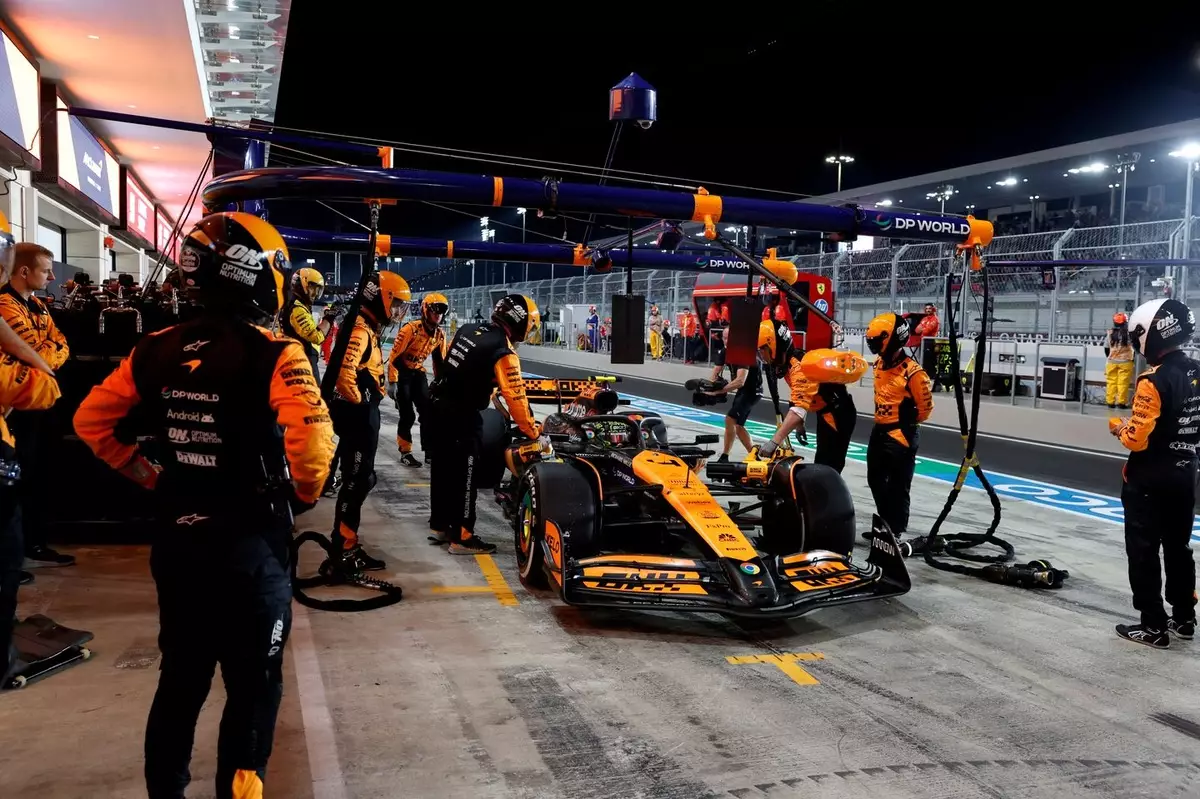In the world of Formula 1, the application of penalties has always been a topic of contention among teams, drivers, and fans alike. Recent events have reignited these discussions, particularly following the Qatar Grand Prix, where Lando Norris received a significant 10-second stop-go penalty for not adhering to double yellow flags, a critique raised by his team, McLaren, headlined by team principal Andrea Stella. The outrage surrounding the disproportion between actions taken on the track and the subsequent penalties suggests a crucial need for a thorough examination of how disciplinary measures are determined and enforced by the FIA.
While it is essential to instill discipline in race conditions, the concern lies in where one draws the line. In Norris’s case, the rule was clear: drivers must reduce speed at the sight of yellow flags. However, many, including Stella, contend that the penalty handed down was excessively harsh. Comparing the nature of his infraction to the severity of the subsequent sanction raises an important question: is the regulatory framework of Formula 1 equipped to fairly assess each unique situation?
The Potential Impact on the Championship
What makes this issue more stark is its potential ramifications on championship standings. Stella elucidated that the harsh penalty could have far-reaching effects on McLaren’s aspirations and, by extension, on the overall competition. The essence of any sport, particularly one as high-stakes as Formula 1, hinges on fairness and consistent application of rules. Any instance where penalties significantly skew the competitive landscape can lead to frustrations that echo throughout the season.
Furthermore, the broader implications extend beyond just individual performances or single races. A consistently enforced regulation is vital not just for teams but for the integrity of the sport itself. If drivers and teams cannot trust that penalties will be applied judiciously, it undermines the very foundation of fair competition. There’s a growing concern that recurring situations like Norris’s could lead to broader upheaval if a lack of clarity and proportionality persists in disciplinary measures.
A Call for Review and Improvement
Stella expressed that it isn’t about overturning Norris’s personal penalty but about initiating a critical discussion about the penalty system. His remarks suggest an urgent need for the FIA to reassess existing protocols for issuing penalties. It’s not merely a question of how penalties are rendered but how they reflect the realities of racing—something inherently dynamic and subject to countless variables.
In highlighting a potential disconnect in the decision-making framework— likening it to crack open a dusty old book of rules —Stella encapsulated a fundamental issue: the rigidity of the current system may not be suitable for the complex landscape of modern Formula 1. It raises the question of whether the FIA is adjusting to evolving racing dynamics or falling back on outdated standards.
Moreover, there is a shared sentiment among teams, as evidenced by the reactions from other leaders in the paddock, like Toto Wolff from Mercedes. His commentary regarding the overall harshness of penalties reinforces a collective consensus that consistency is paramount. If the FIA fails to provide equitable treatment across different incidents, it could lead to widespread discontent among all teams, further complicating the championship landscape.
Ultimately, the recent outcry over penalties in Formula 1 transcends individual cases like that of Lando Norris. It infuses an essential dialogue surrounding the future of the sport, the notions of fairness, and the opportunities for improvement in regulatory practices. The FIA holds significant responsibilities as the governing body of Formula 1—it is imperative for them to foster an environment where rules are not just in place but are applicable, fair, and consistent.
Moving forward, the discussions initiated by McLaren’s grievances must serve as a catalyst for change. A professional sporting organization must embrace adaptability while ensuring that all participants operate within a framework that is just and equitable. In the high-octane world of Formula 1, where every point counts, it is more crucial now than ever to build a groundwork of trust between teams and governance, enhancing the integrity of the competition itself.

